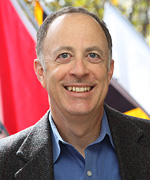 Jeffrey Knopf – Professor ⋅ Senior Research Associate
Jeffrey Knopf – Professor ⋅ Senior Research Associate
Program Chair, Nonproliferation and Terrorism Studies
[email protected]
Monterey, CA
831.647.7174
Areas of Research
- Causes, consequences, and amelioration of nuclear, biological, and chemical weapons proliferation
- Deterrence, assurances, and other security strategies, and their applications to threats posed by terrorism and WMD proliferation
- International security cooperation, including arms control, cooperative threat reduction, and multilateral nonproliferation regimes
- Peace movements, NGOs, and public opinion, and their influences on foreign policy
- International Relations Theory, with a focus on the interaction of domestic and international politics, psychological influences on decision-making, and the prospects for learning in international affairs
Background
Before joining the MIIS faculty, Dr. Jeffrey Knopf taught at the University of Southern California, the University of California-Santa Cruz, and the Naval Postgraduate School. He worked once before at CNS, where he served as Editor of The Nonproliferation Review from 1998-2000. He has also worked on national defense issues at several NGOs based in Washington, DC. In 2011, Dr. Knopf was part of a team commissioned by the U.S. Defense Department to study ways to deter and influence violent extremism.
Education
- M.A. and Ph.D. in Political Science from Stanford University
- B.A. in Social Studies from Harvard University
CNS Work
- Nonproliferation Review Publishes First Special Issue on “Beyond Nuclear Deterrence”
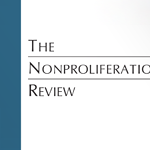 The Nonproliferation Review features a special collection of articles by the Harvard–MacArthur Beyond Nuclear Deterrence Working Group.
The Nonproliferation Review features a special collection of articles by the Harvard–MacArthur Beyond Nuclear Deterrence Working Group. - The Inherent Unpredictability of Nuclear Deterrence
 This essay by Jeff Knopf is the lead article in a special issue of The Nonproliferation Review featuring papers from the Beyond Nuclear Deterrence working group.
This essay by Jeff Knopf is the lead article in a special issue of The Nonproliferation Review featuring papers from the Beyond Nuclear Deterrence working group. - Should We Take Deterrence for Granted?
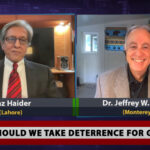 Dr. Knopf discusses how to estimate future risks associated with nuclear deterrence.
Dr. Knopf discusses how to estimate future risks associated with nuclear deterrence. - Russia’s War on Ukraine: The Implications for the Global Nuclear Order
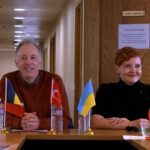 A seminar video with speakers Dr. Iryna Maksymenko, Dr. Valeriia Gergiieva, Ms. Valeriia Hesse, and Dr. Tetyana Melnyk.
A seminar video with speakers Dr. Iryna Maksymenko, Dr. Valeriia Gergiieva, Ms. Valeriia Hesse, and Dr. Tetyana Melnyk. - Why the Ukraine war does not mean more countries should seek nuclear weapons
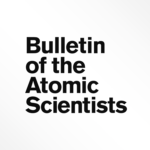 The full balance sheet of pros and cons from both Ukraine and earlier cases does not lead to a persuasive argument for nuclear proliferation.
The full balance sheet of pros and cons from both Ukraine and earlier cases does not lead to a persuasive argument for nuclear proliferation. - Russia isn’t likely to use chemical weapons in Ukraine – unless Putin grows desperate
 There are unconfirmed reports Russia used chemical weapons in Ukraine. Syria’s chemical weapons use offers context for this tactic.
There are unconfirmed reports Russia used chemical weapons in Ukraine. Syria’s chemical weapons use offers context for this tactic. - Not by NPT Alone: The Future of the Global Nuclear Order
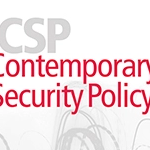 The Nuclear Non-Proliferation Treaty (NPT) entered into force 50 years ago. Catch up on the international arrangements and how they have been eroding.
The Nuclear Non-Proliferation Treaty (NPT) entered into force 50 years ago. Catch up on the international arrangements and how they have been eroding. - Masters Students in Dual Degree Program Defend Theses
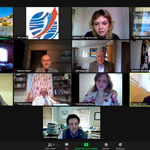 Students from Russia, the United States and South Korea presented their final papers as the result of their studies in 2019-2021.
Students from Russia, the United States and South Korea presented their final papers as the result of their studies in 2019-2021. - Behavioral Economics and Nuclear Weapons
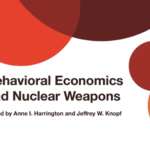 New book shows how nuclear choices deviate from “rational” decision making.
New book shows how nuclear choices deviate from “rational” decision making. - The Future of the Iran Nuclear Deal: Implications of US Withdrawal
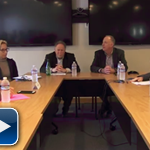 VIDEO: Seminar with CNS & MIIS experts took place on May 22, 2018, at CNS of MIIS in Monterey.
VIDEO: Seminar with CNS & MIIS experts took place on May 22, 2018, at CNS of MIIS in Monterey.
Selected Bibliography
- “Nuclear Disarmament and Nonproliferation: Examining the Linkage Argument,” International Security 37, no. 3 (Winter 2012/13).
- Editor, Security Assurances and Nuclear Nonproliferation (Stanford, CA: Stanford University Press, 2012).
- “NGOs, Social Movements, and Arms Control,” in Arms Control: History, Theory, and Policy, ed. Robert E. Williams, Jr. and Paul R. Viotti (ABC-CLIO/Praeger, 2012).
- “The Concept of Nuclear Learning,” Nonproliferation Review 19, no. 1 (March 2012).
- “The Fourth Wave in Deterrence Research,” Contemporary Security Policy 31, no. 1 (April 2010). Winner of the Bernard Brodie Prize for best article in the journal in 2010.
- “Three Items in One: Deterrence as Concept, Research Program, and Political Issue,” in Complex Deterrence: Strategy in the Global Age, ed. T.V. Paul, Patrick Morgan, and James Wirtz (Chicago: University of Chicago Press, 2009).
- “Recasting the Proliferation Optimism-Pessimism Debate,” Security Studies 12, no. 1 (Autumn 2002).
- Domestic Society and International Cooperation: The Impact of Protest on U.S. Arms Control Policy, Cambridge Studies in International Relations no. 60 (Cambridge, UK: Cambridge University Press, 1998).
- “Beyond Two-Level Games: Domestic-International Interaction in the Intermediate-Range Nuclear Forces Negotiations,” International Organization 47, no. 4 (Autumn 1993).
